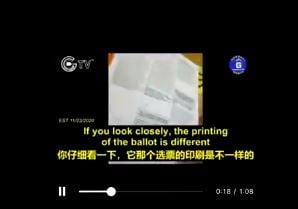Earlier this evening, the Pennsylvania Supreme Court issued a brief, three-page order dismissing an election lawsuit brought by Sean Parnell and several other qualified Pennsylvania voters challenging the constitutionality of Pennsylvania’s recently-enacted state law governing mai

uncoverdc.com
From the article:
The Pennsylvania Constitution and Voting Law
The Pennsylvania constitution allows absentee voting under five situations: (1) work; (2) illness; (3) physical disability; (4) the election occurring on a religious holiday; or (5) a person’s election-day duties themselves preventing the person from voting in person. No other justifications are allowed for absentee voting under the Pennsylvania constitution.
Towards the end of 2019, a majority of both houses of the Pennsylvania General Assembly passed the relevant mail-in voting legislation at issue here. As I discussed in my previous
two articles, this legislation expanded voting by mail beyond the above-five situations under the Pennsylvania constitution to include any situation. In other words, the law purported to allow voting by mail for any reason whatsoever.
But while the General Assembly
passed the legislation, this was not, in and of itself, sufficient to amend the Pennsylvania constitution and expand voting by mail beyond the above-five circumstances. To amount to a constitutional amendment, the Pennsylvania constitution requires that the law be passed a second time by a majority vote of both houses of the General Assembly in the next legislative assembly. Once that is done, a majority of Pennsylvania voters then have to approve the mail-in voting legislation in a statewide election.
The above process has not taken place. Indeed, the Pennsylvania General Assembly itself appears to have recognized that such an expansion of mail-in voting would have to come about via a constitutional amendment, as the law itself was originally presented as a joint resolution proposing an amendment to the Pennsylvania Constitution.

defendingtherepublic.org



